As the high-fruit diet becomes more popular and mainstream, skeptics wonder if it is a form of an eating disorder. As a recovered bulimic and advocate of the high-fruit lifestyle I will explain why this dietary approach gives little cause for alarm.
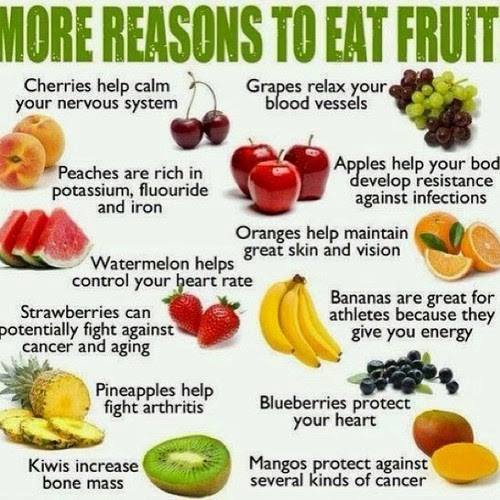
A high-fruit diet is one in which the bulk of daily calories comes from raw, whole sweet fruit. Daily fruit intake is ideally followed by raw or steamed greens, vegetables, non-sweet fruit, and whole plant fat later in the day. Whole, raw fruit supplies ample fructose and glucose to sweetly and purely fuel human cells…something all humans need.
While it is possible to loose weight eating a high-fruit diet, it is also easy to maintain a healthy weight by being mindful of personal caloric needs. Rarely are committed fruitarians overweight. Every human body needs approximately 1,200 daily calories simply to function. Sedentary people can add about 300 calories, moderately active people about 600 calories, and high active people and training athletes can add significantly more. The purest form of fuel is natural fruit sugar, fructose and glucose, which convert easily and quickly to glycogen to power human cells.
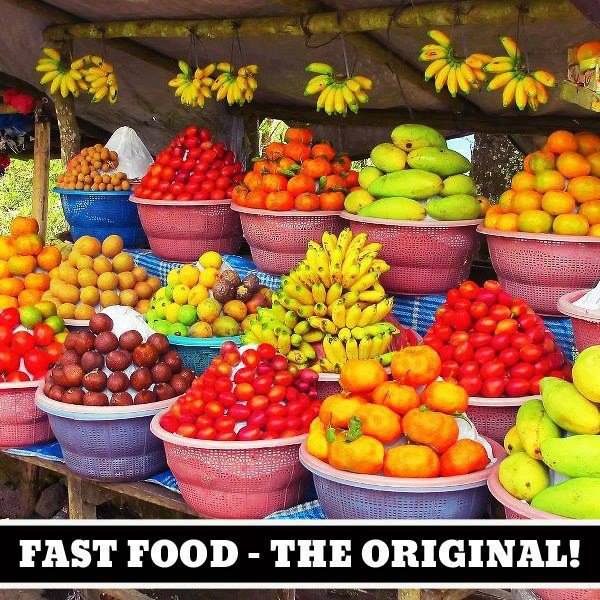
From an outside perspective, a high-fruit diet can look limited, radical, and controlled. While it certainly does not conform to the status quo, eating a diet loaded with fruits is liberating. It is amazing to experience the shift that happens when simple, delicious fruits become wildly complex in their subtle flavors, textures, and smells. Most modern grocery stores have an abundant assortment of fruits – some in season, some local – year around. There are exotic fruits from all around the world to discover and plenty of frozen fruits to keep on hand. Eating a diet focused highly on fruit, one has ample choices, variety, and excitement.
Some people think they would starve eating a high-fruit diet, however if you’ve ever seen a young women eat an entire watermelon for breakfast, you know that she does not go hungry! When fruit is no longer a side-dish or topping but rather the entire meal, there is bountiful fruit to enjoy in one sitting. Those who embrace the high-fruit lifestyle love to eat! It’s not uncommon to eat an entire bunch of bananas for a meal.
Fruitarians love to share their lifestyle and their fruit. There is rarely any secrecy, shame, or guilt…hallmarks of a true eating disorder. Haphazardly approaching a high-fruit lifestyle without some basic understanding can lead to intense hunger, binging, rapid weight loss, or blood sugar imbalances, but an educated individual can have life-long success as a fruitarian. Eating disorders destroy health. Smart high-fruit diets preserve, cultivate, and establish sound health.
True, extreme starving by intaking fewer than 1,200 calories per day or binging on excess food and then purging could be done on a high-fruit diet as with any other kind of food. But because fruitarians limit their food choices in a world filled with thousands of packaged, processed, fast, junk, and complex cooked food choices, it doesn’t mean that they have eating disorders. If we were to shop in nature among the orchards and gardens, fruit would be our prized and preferred selections for their ready-to-eat state, caloric benefit, and pure clean fuel. No other natural whole food can claim this ideal trifecta!
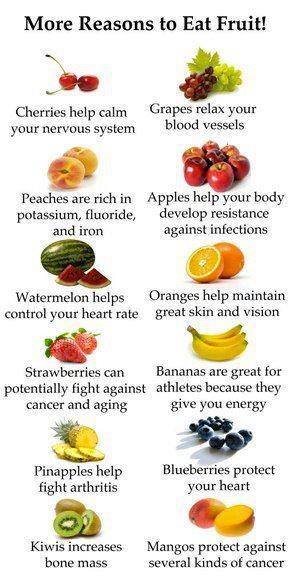
When it comes to food that is ready to eat in its natural form, beautiful to the eye, sweet to the tongue, and which supplies optimal fuel for the body, nothing beats fruit. For anyone wishing to increase their energy and mental clarity, gently cleanse on a regular basis, and simplify their life, the high-fruit lifestyle is one to explore.
Perhaps the true eating disorder is the unexamined diet, blindly eating from the selections offered by grocery stores and restaurants. Just because a food or food-like choice is made available for consumption, it doesn’t mean that it is a wise choice to eat. If the true definition of food is embraced and toxic food ingredients are avoided, approximately 75-80% of an average grocery store is no longer considered an option. Buyer beware….and educated!
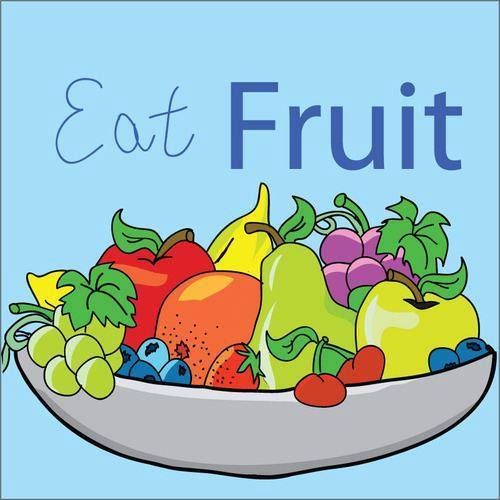
Eating disorders are characterized by overeating, purging, severe restrictions, cravings, impulsive eating, addictions, starvation, and obsession with food. Mass marketed food-like products are designed to addict, lack adequate nutrition which triggers overconsumption, and cause cravings to develop. Mass marketed remedies include weight-loss diets that promote severe restrictions, purging with cleansing products or exercise, starvation, and generate obsessions with food. Common lifestyle diseases that often arise from mass marketed eating are obesity, cancer, diabetes type 2, and heart disease.
Rarely does an educated fruitarian suffer from obesity, cancer, diabetes type 2, heart disease, cravings, addictions, or starvation. Perhaps a high-fruit diet is actually a step in the healthier direction to cure the ills of mass society. Fruitarians rarely eat in secrecy, shame, or guilt whereby defying the core nature of a true eating disorder. Most often they exhibit their diet publicly, are proud of their choices, joyful, sharing, and aim to inspire others to adopt this path of healthful, sweet, and juicy happiness.
I know the hell that is life living with an eating disorder. This high-fruit lifestyle has been nothing but liberation and pure, sweet heaven.

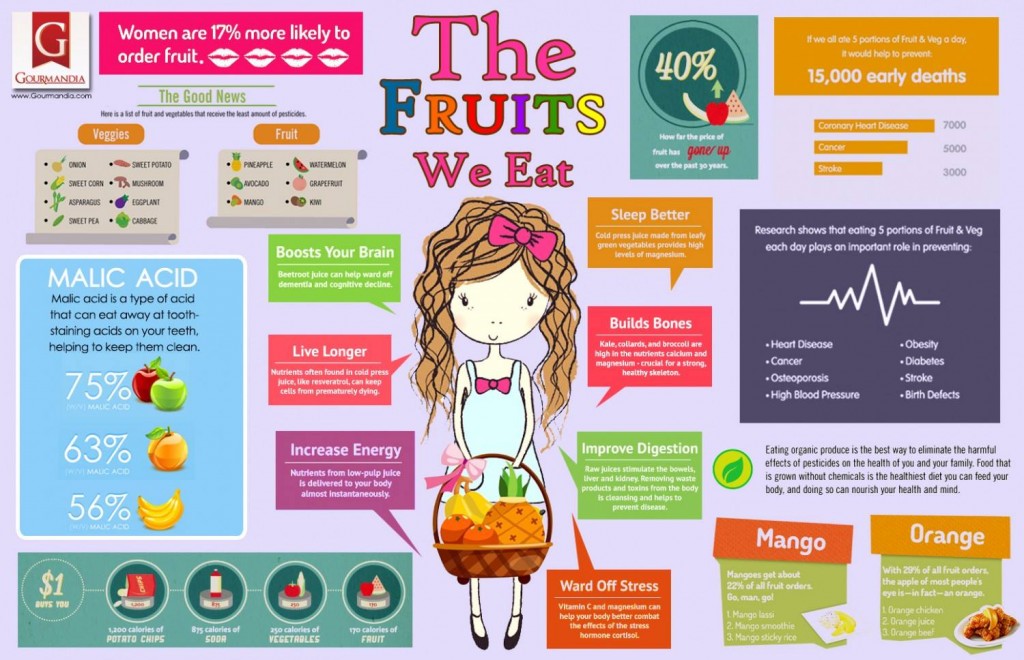

{ 2 comments… read them below or add one }
Very interesting could I participate to your weeks of fruits?
Thank you Michael for reading & commenting. Fruit Til Five™ is now an integral part of The Vegan Key™. You can check it out here: https://www.carlagoldenwellness.com/the-vegan-key/